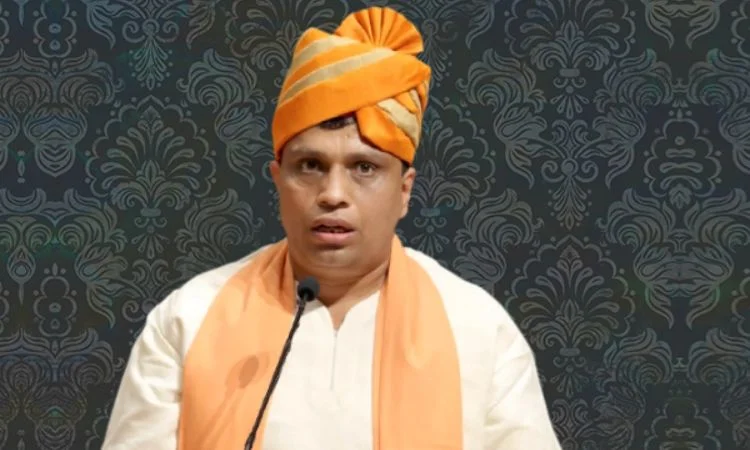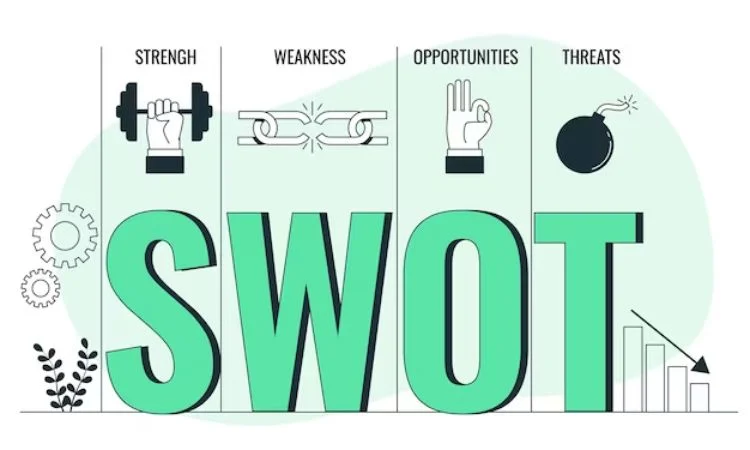Let’s explore Ayurveda Maverick-Patanjali’s Marketing Strategy: Unveiling the secrets behind Patanjali’s successful marketing approach.
The Indian consumer remains one of the most challenging markets of the world. A number of international brands like Chevrolet, Ford, found it impossible to sustain, while on the other hand, brands like Nestle, Kellogg’s etc. still struggle to meet the consumer expectations. This is because of two main reasons:
1. Price Competition
Majority population in India have an inclination towards cheap products. They are ready to compromise on quality but not on quantity. Hence, companies often find it difficult to pitch their product against local products.
2. Consumer Preference
Indian consumer is highly driven with emotions. Hence, a bit offensive advertisement or an unruly statement costs a fortune to the company. For example: Tanishq ad wherein makers were slammed to show inter faith marriages. Hence, it is very difficult to assume the consumer emotion in India.
However, one brand which used people’s belief system into it’s favor is Patanjali Ayurveda.
About Patanjali
Patanjali Ayurved Limited, founded by Baba Ramdev and Acharya Balkrishna in 2006, was established to promote and sell ayurvedic medicines and yogic practices has now emerged as a disruptive force in the Indian consumer goods industry with a plethora of consumer goods ranging from biscuits to even protein bars. With its emphasis on natural, Ayurvedic products and a unique marketing strategy, Patanjali has swiftly captured a significant market share across various product categories. With a valuation of above 30000 crore rupees and Q4 net profit of rupees 264 crores, it is one of the largest fast moving consumer goods company in India. Recently, it acquired Ruchi Soya,
which is a listed company primarily operating in business of soybean products like soyabean chunks with brand name Nutrela etc.
The Founders
Baba Ramdev and Acharya Balkrishna are the driving forces behind the success and growth of Patanjali Ayurved Limited. They co-founded the company in 2006 with the shared goal of promoting Ayurveda and providing natural, traditional alternatives to various consumer products. Their combined efforts and unique roles have played a crucial role in shaping Patanjali’s marketing strategy and overall success.
Baba Ramdev:

Baba Ramdev is a well-known yoga guru and spiritual leader in India. He is also a proponent of Ayurveda and holistic health practices. Ramdev’s popularity and charisma have been instrumental in promoting Patanjali products.
He is often seen in promotional campaigns and advertisements for the brand. His yoga programs and health workshops have also contributed to Patanjali’s visibility and credibility in the market. Ramdev’s public persona and commitment to promoting traditional Indian wellness practices have helped establish Patanjali as a trusted brand in the minds of consumers.
Acharya Balkrishna:

Acharya Balkrishna is a close associate of Baba Ramdev and serves as the managing director and primary strategist of Patanjali Ayurved Limited. He is a renowned Ayurvedic expert and researcher. Balkrishna’s deep understanding of Ayurvedic principles and formulations has been crucial in the development of Patanjali’s product line.
Under his leadership, the company has focused on creating products that align with Ayurvedic principles while also adhering to modern quality standards. His expertise in traditional medicine and his business acumen have been pivotal in the company’s rapid expansion and diversification.
Together, Baba Ramdev’s public presence and Acharya Balkrishna’s expertise have created a synergy that drives Patanjali’s marketing strategy and business growth. Their shared vision of bringing Ayurvedic products to the masses, combined with their innovative marketing tactics, has enabled Patanjali to capture a significant market share and challenge established players in the consumer goods industry.
The duo’s commitment to promoting wellness, natural ingredients, and Indian values has resonated with consumers, contributing to Patanjali’s remarkable journey in the market.
Patanjali’s Marketing Strategy
Patanjali uses a plethora of marketing techniques to connect with people and persuade them to buy it. However, it essentially revolves around following aspects
1. Focus on Ayurveda and Natural Products: Patanjali’s primary marketing strategy revolves around its emphasis on natural and Ayurvedic products. They positioned themselves as a brand that offers products based on traditional Indian wellness practices, tapping into the growing demand for natural and herbal products.
2. Nationalism and Swadeshi Movement: Patanjali often used a patriotic and nationalist narrative in its marketing. They marketed themselves as a ‘Swadeshi’ brand, encouraging consumers to support Indian products over foreign ones, aligning with the Swadeshi movement. This resonated with consumers who were looking to support local businesses.
3. Celebrity Endorsement: Baba Ramdev, one of the co-founders, is a well known yoga guru and spiritual leader in India. His popularity was leveraged to endorse Patanjali products, adding credibility and trust to the brand. Hence, Patanjali not only cut costs on account of celebrity promotion but also carries out celebrity promotion through Baba Ramdev.
4. Affordability and Value for Money: Patanjali products were priced competitively, often lower than their competitors. This strategy aimed to attract price-sensitive consumers who were looking for value for their money. Marketers often question the sustainability of pricing model of Patanjali.
Patanjali prices it’s unpopular products lower and hence, focusses on quantity. However, it has certain products which are widely accepted and used like toothpaste, chawanpraash etc. It charges a premium price for these products, hence, striking a balance.
5. Diverse Product Portfolio: Patanjali ventured into a wide range of product categories including personal care, food and beverages, health supplements, and more. This diverse portfolio allowed them to cater to a broad consumer base and become a one-stop shop for natural and Ayurvedic products.
6. Word of Mouth and Grassroots Marketing: The brand gained significant popularity through word of mouth and grassroots marketing efforts. Baba Ramdev’s yoga camps and TV shows played a role in spreading.
awareness about Patanjali products. Word of mouth is by far the most effective and efficient promotion method in India. Patanjali recognized it and put it to use.
7. Health and Wellness Campaigns: Patanjali often conducted health and wellness campaigns, promoting yoga, Ayurveda, and healthy lifestyle practices. These campaigns not only promoted their products but also aligned with their brand identity. While visiting a Patanjali store, a consumer can often find a “free ayurvedic consultation” cabin. It not just serves as a free service but people buy medicines manufactured by Patanjali prescribed by the practitioner.
8. Quality Assurance and Transparency: The brand emphasized the use of natural and herbal ingredients, and they communicated this commitment to quality and transparency in their marketing. This resonated with health-conscious consumers. Whether marketing it’s fast moving consumer goods or covid medicine, Patanjali revolves around ayurveda which is trusted by people in India irrespective of government certifications and validations.
9. Digital Marketing and Social Media: Digital marketing includes websites for products, social media platforms, etc. refers to the use of digital platforms. Although Patanjali achieved her initial growth primarily through social media and word-of-mouth marketing, she has begun to combine digital marketing and social media platforms to reach a wider, tech-savvy audience.
People’s belief and Marketing
Patanjali uses people’s belief in every aspect of it’s product promotion. It is one of those few companies which used cons of Indian consumer market into it’s favor. This is done as
1. Nationalist Movement: Patanjali uses it’s nationalist image to market the product. It successfully launched a battery of products and increased its market share through nationalist spirit. It showcased how Indian market and it’s consumers are exploited by foreign brands to increase their own sales. It focused on promoting their product as “swadeshi” which means “of our own country”.
Similarly, Patanjali never uses the phrase “Made in India”. It’s product always bear “Made in Bharat” phrase since people consider Hindi as their own language.
2. Ayurvedic Principles: People trust ayurveda blindly since it is a part of our traditions and of our everyday life as well. For example: Tulsi leaves are part of Hindu traditions and are also used as medicinal herbs. Hence, majority of Indians have a blind faith on Patanjali since it uses herbs as it’s main ingredient and don’t look for any other certifications.
3. Leveraging social issues: People have a strong conviction that city lifestyle damages living. Patanjali used this conviction into it’s favor. The individuals which resonate with environmental conservation and natural living would tend to buy “chemical free” Patanjali product to ensure healthy living.
4. Yoga and wellness: This aspect acted as a catalyst in the name and fame of Patanjali. Baba Ramdev started his journey as yogic guru. Steadily Patanjali introduced and sold “yoga packages” and they were a big hit amongst newly retired elderlies.
5. Emotional connect: Baba Ramdev keeps on raising issues which emotionally affect people. In 2012, he raised issue of black money which was directly related to people sentiments back then. Hence, through these types of initiatives, people tend to trust the celebrity on everything. Therefore, his word of mouth becomes very effective since he tries to establish an emotional connect with people on other issues as well.
Swot Analysis of Patanjali

What is SWOT?
SWOT refers to strength, weakness, opportunity and threats to an organization. In this segment, we will look upon SWOT of Patanjali
Strengths
1. Strong Brand Identity: Patanjali has built a recognizable and trusted brand identity, particularly in India, by positioning itself as a promoter of natural and Ayurvedic products.
2. Diverse Product Portfolio: The company offers a wide range of products spanning various categories, which allows them to target a broad customer base and create multiple revenue streams.
3. Founder’s Credibility: Baba Ramdev’s reputation as a yoga guru and spiritual leader lends credibility to the brand, particularly in the wellness and Ayurveda sectors.
4. Affordable Pricing: Patanjali products are often priced competitively, appealing to price-conscious consumers and enabling the brand to penetrate lower-income segments of the market.
5. Rapid Growth and Penetration: Patanjali experienced remarkable growth in a relatively short period, making it a formidable competitor in the consumer goods sector.
Weakness
1. Quality Concerns: Over the years, there have been occasional concerns about the quality and safety of Patanjali products, which could undermine consumer trust and brand reputation.
2. Limited International Presence: While Patanjali has a strong presence in India, its international reach and recognition are comparatively limited.
3. Dependence on Key Figures: The brand’s popularity is closely linked to Baba Ramdev and Acharya Balkrishna. The absence or loss of trust in these figures could impact the brand’s image.
4. Perception of Being Less Scientific: Some critics have questioned the scientific validity of Ayurvedic and natural remedies, which could affect the brand’s appeal to a more scientifically-minded audience.
Opportunities
1. Growing Demand for Natural Products: The increasing preference for natural, organic, and Ayurvedic products presents a significant opportunity for Patanjali to further expand its market share.
2. Global Expansion: Patanjali can explore opportunities for international expansion, capitalizing on the global trend of health-consciousness and interest in traditional Indian practices.
3. Digital Marketing and E-commerce: Expanding their digital presence and e-commerce operations could help Patanjali reach a wider audience and tap into the online shopping trend.
4. Partnerships and Collaborations: Collaborations with established retailers, health and wellness experts, or even other brands could enhance Patanjali’s credibility and reach.
Threats
1. Competition: The consumer goods market is highly competitive, with established multinational brands already holding a significant market share. Competing with these giants can be challenging.
2. Regulatory Challenges: The natural and Ayurvedic products space is subject to stringent regulations. Non-compliance or legal challenges could impact Patanjali’s operations.
3. Quality Perception: Any incidents related to product quality or safety could have a severe impact on consumer trust and brand reputation.
4. Changing Consumer Preferences: Consumer preferences are dynamic, and if there’s a shift away from Ayurvedic or natural products, Patanjali could face difficulties in adapting.
5. Economic Factors: Economic downturns or fluctuations could influence consumer spending habits, affecting Patanjali’s sales.
Conclusion
Patanjali’s business philosophy is, at its core, a blend of tradition and modernity, drawing on timeless beliefs while adapting to the immediate needs of consumers. Try this. His journey from a small business to a big customer is a testament to the power of marketing strategy in winning the hearts of customers. As the brand continues to evolve, it will be interesting to see how it will change direction in a changing market while staying true to its core values and beliefs.















